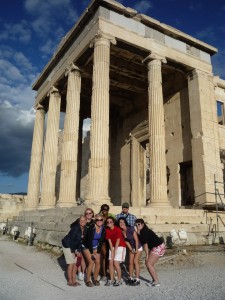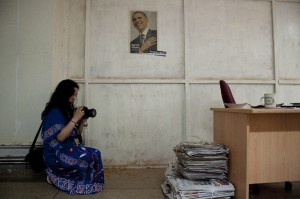By Frank D. LoMonte
Executive Director, Student Press Law Center
Fueled by billions in television and licensing revenues, college athletic departments are increasingly stiff-arming journalists by restricting access to practices and games. Meanwhile, media industry leaders are looking for ways to respond.
 The start of football season in August 2012 brought a wave of new restrictions on journalists—professionals and students alike—who cover college athletics. Threatening to revoke press credentials or close practices, coaches at several schools, including the University of Southern California, Washington State University and the University of North Carolina, ordered journalists to refrain from reporting on player injuries observed during practices.
The start of football season in August 2012 brought a wave of new restrictions on journalists—professionals and students alike—who cover college athletics. Threatening to revoke press credentials or close practices, coaches at several schools, including the University of Southern California, Washington State University and the University of North Carolina, ordered journalists to refrain from reporting on player injuries observed during practices.
In recent years, colleges and athletic conferences have become increasingly assertive about controlling how media organizations use the information and images they gather at sporting events. Continue reading “Student and professional journalists dealing with restrictions on sports coverage”




